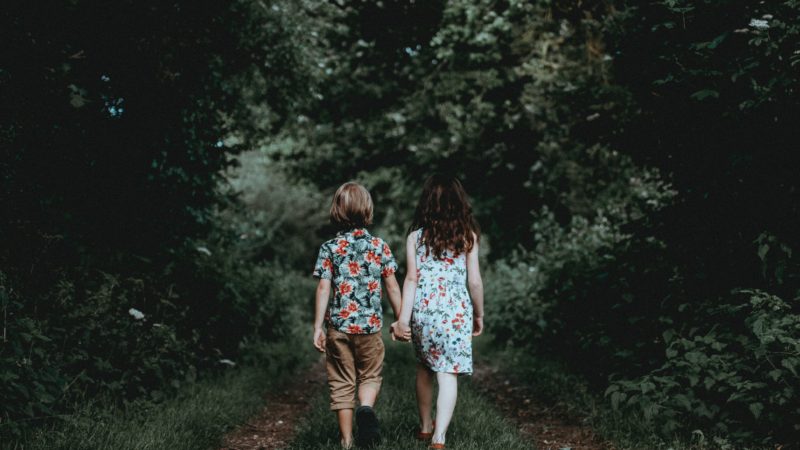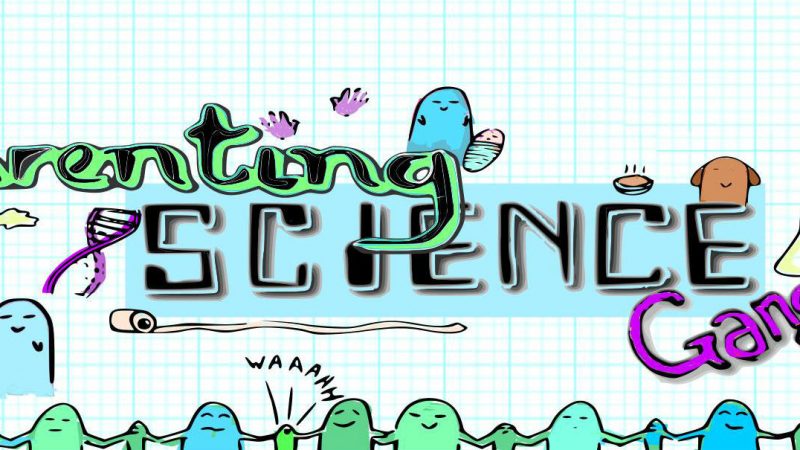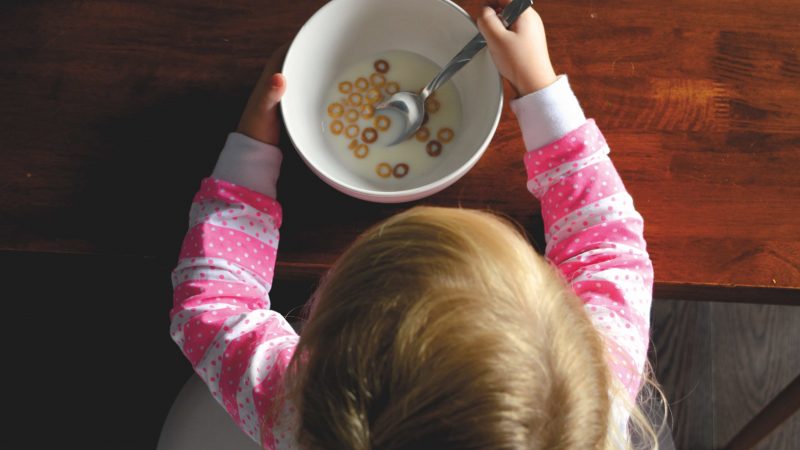
Sibling Relationships – a Q&A with Prof Ros Edwards
What difference do siblings make to each other’s lives? We asked Professor Rosalind Edwards about her research into children’s understandings of their relationships with their family.
Image: by Annie Spratt on Unsplash
Ros: Hi, I’m Ros. I’m a Professor of Sociology at the University of Southampton and also a co-director of the National Centre for Research Methods.
My research mainly focuses on people’s own understandings of their family lives, rather than measuring outcomes or predicting. One of the studies I directed is longitudinal and, over the course of a decade, has asked young people about their relationships with their sisters and brothers, and their friends, from childhood through into early adulthood.
I’m looking forward to hearing about your interests in the topic.
Q: Thanks so much for joining us tonight. Can you tell us a little about what drew you to this research in the first place?
Ros: I am a sibling. Also I’m interested in children’s views. And I realised that there wasn’t much research on their views of siblings.
PSG B: I have 3 children. My partner is an only child. He expects me to understand our children’s interactions as I have siblings. I am one of 4. My eldest sister paints herself as the heroine or many stories!
PSG D: The different perspectives would be very interesting! I’m the eldest of 4 and we all have distinctively different memories/opinions of our childhood
Ros: I’m oldest and that can colour my view and understanding of what the children and young people tell me!
Q: What would you say were the most interesting aspects of what you found in your research? And did they reflect your experiences of being a sibling?
Ros: Most interesting was that I never knew what we were going to find when we went back to revisit the young people. Hate could turn into love. Love could turn into distance.
Q: It was fascinating to hear how differently siblings can experience the same family set up (explains a few things!) Was that a surprise to you?
Ros: I think that a lot of the research has things to say about birth order and sibling position. But how children understand that position was interesting to unpack. We don’t consider that very often – that our understandings of our position in society can be shaped by our relations with siblings – about hierarchies about gender relations and so on. I also learned what children mean when they say their brother or sister is ‘annoying’.
PSG C: Were there patterns that you observed – that children with similar configurations of siblings had similar views of their position in society?
Ros: I posted about the middle sibling, and that was the pattern – older, middles, younger. but that gets crosscut with gender, race/ethnicity and social class, so it’s not a defined pattern. And of course there are different personalities.
PSG A: What do kids means when they say their brother or sister is ‘annoying’? I’m intrigued!
Ros: This is especially mentioned by older siblings of their younger ones. It means things like ignoring unspoken rules between siblings about behaviour (stay out of my room, don’t take my toys), acting immaturely, being noisy and interfering.
For younger siblings it can mean getting them into trouble, and the older sibling being physically dominating, telling them what to do etc.
Q: How do you gather the research and take people’s stories and experiences? I work with people and I’m very interested in finding out how to best gather people’s stories, especially over time.
Ros: It was fascinating – the real and long-lasting passions that are involved. I’ve been a researcher for a long time now. I don’t have any specific training. I just am interested in what people have to tell me, of whatever age, and I don’t have an agenda other than to listen to their point of view.
Keeping in touch between interviews is important to the longitudinal approach – sending birthday cards and celebration card. We also had a Facebook group for our research participants. They didn’t post much but it kept us in touch.
PSG C: What do you think that the participants got out of the experience?
Ros: They only carried on participating in the research if they enjoyed it. For most, it’s quite nice to have someone interested in your life and wanting to hear about your experiences. Some also asked us for references when they applied to university!
Q: We’re planning to home educate our kids – have you come across any home educator-specific results? What it’s like when the kids are together for long periods over many years, not just in the early years?
Ros: It’s tough if they don’t like each other, but good if they. I think that quite a few of our young people who were younger siblings found it hard when older brothers or sisters left home.
PSG G: I’ve read a couple of articles on various home educator blogs that suggest home-educated siblings are often very good friends because they are together much more, and because their social circles aren’t made up of just children their own age (so they’re much happier to hang out with younger and older children). Have you found anything similar? Is there any specific research into sibling relationships when home educated?
Ros: I can’t answer that from the research that I’ve carried out. It doesn’t mean that the knowledge isn’t out there somewhere though, just that I haven’t come across it.
PSG E: We should add that to the list of Parenting Science Gang futures – maybe get a home educators co-op project that the kids can do across the country (that’s not massive, at all, obviously!).
Q: I’m interested in whether adult siblings report similar dynamics/roles to those they experienced as childhood siblings. Are there any tips for changing those dynamics (asking for a friend ?)?
Ros: Ha! You are not alone. Those dynamics can last an awful long time. We had people in their 80s in one piece of research who still felt very strongly negative feelings about their siblings – but also those who loved and missed them. I don’t know about changing the dynamics. I think that might need someone with another sort of expertise to advise you.
PSG I: I had very different experiences from my younger siblings – I’m 8 yrs and 10 yrs older than the 2 half brothers I grew up with. It’s totally understandable we would have different experiences of our parents. I find it hard to imagine how different siblings with less of an age gap would experience the same family differently?
Ros: They can though. They can view their parents as treating them quite differently. They can have different relationships with siblings within their family.
Q: Did you see patterns emerging about the difference between same-sex and different sex siblings? Did their relationships differ particularly, and if so how?
Ros: Very much so. Sisters value talk as demonstrating closeness. Brothers value activities. In sister/brother cases, I’m afraid it’s the boys who win out – they do activities together.
PSG K: How often did you interview the people in the study? And did you speak to all the siblings in a family? I’m interested to know how similar/different the accounts were of a relationship from different sides.
Ros: We did get different stories from different sibling. Sometimes we interviewed siblings together if they asked us to, but mostly on their own. We tried to go back every year or so. But research is expensive and we didn’t always manage that. Sometimes it was a year before we could get the funding to do it. But we managed it over a 10 year period.
PSG L: Have you looked at the impact of being an only child at all? Do only children have less positive experiences than those with siblings?
Ros: No I haven’t. I don’t think there’s a lot of research on that. It is something I’d like to look at.
PSG L: My sister is a huge part of my life so it’s hard to let my little girl be an only child, but I’m not sure I’m ready for a 2nd.
PSG I: Oooooooo – an idea for a study 🙂
PSG L: I have so many of those ??
Q: Does the age gap between siblings seem to influence their relationship? My children have a 5 year age gap and seem to rarely fight (similar to my brother and I), however friends with 2 year gap between their kids seem to have more conflict.
Ros: In cases where the oldest sibling was a lot older, then they often viewed their baby sibling with fondness, yes. But we also have cases of siblings very close in age and in relationship. But that could shift over time. That’s one thing I did learn – you cannot tell how things will pan out.
PSG L: Does your research suggest that there is an optimum age gap between children?
Ros: Optimum in terms of what? I can only answer you in terms of the experiences of the young people we spoke to.
PSG L: In terms of having a positive experience of being a sibling.
Ros: Not firmly so, no. but I think I’ve answered a bit of your question above.
Q: Did you find all siblings reached a similar education or employment level? Or is that too personality based?
PSG O: My family certainly didn’t- we’re very different in those terms. But husband’s family is much more similar.
Ros: That’s interesting. I’m going to look into our data a bit more about that.
PSG E: Such a good question! we three are completely different.
Ros: Our research is all about personally based, not big patterns. But this is also related to class, gender and ethnicity in terms of education levels too rather than just being in the same family.
Q: Have you compared twins to non-twins at all?
Ros: We only had one pair of twins in our research. They were also enlisted in a twins study. So I can’t really say.
Q: Does parenting influence how siblings get along? For example, if siblings are allowed to fight does this affect their relationship compared to siblings whose parents don’t let them fight/squabble etc?
PSG P: I was wondering something similar. Are there factors that seem to predict whether siblings will get on? Be that parenting styles, age gaps, whatever?
Ros: Can parents not let their children fight?
Our participants often argued of course. For some that was just being part of being a sibling. They had different ways of dealing with it. Some felt that their parents should sort it out. But others felt it was up to them to do that – especially the older ones, and they had a variety of strategies for dealing with it.
Q: Has any research been done looking at the influence of ethnicity and sibling relationships? Is there a cultural element to sibling relationships?
Ros: Oh yes, there has been and there is. Siblings can look at each other and judge whether or not their sibling is behaving as they should culturally – being a ‘good’ Sikh or behaving as Chinese people should etc. There’s some nice work by a colleague called Miri Song on this.
PSG M: Thanks, I’ll look these up. If there much information about how the sibling relationship changes if siblings go outside what is culturally normal?
Ros: Siblings can try to bring ‘errant’ brothers and sisters back to the right pathway, they can attempt to exercise sanctions especially if they are older.
PSG Q: Does that not cause resentment in later life if one sibling is always looking after the other one who causes issues?
Ros: Not necessarily, from what our oldest participants told us.
PSG C: Are there cultures that prize close sibling relationships more than others – cultures in which not getting on with your sibling might be more frowned upon?
Ros: There are cultures in which siblings are more responsible for each other, with older siblings taking on a more parent like role, for example in some of the larger Asian families. But there were also instances of this in White families too.
PSG R: Are there also cultural differences about ‘personal space’ expectations? We in UK seem to think children should have a bedroom each if possible, these days, whereas I get the feeling a lot of Mediterranean cultures would value closeness?
Ros: This seemed to be related to social class too. Middle class children often had their own bedroom and wanted their own space, whereas working class children could share quite cramped bedroom space. They made their bed their own space.
PSG M: Interesting – I shared bedrooms with my brothers until I was in high school and have always had a close positive relationship and likewise my kids crave shared space now (and they don’t fight much…).
Q: Were there any characters that particularly stood out for you during your research – kids whose story or what they said have stayed with you?
Ros: Yes, some sadness. There was one boy, in the middle of five siblings. He often felt left out, and he struggled. He died in a car crash just before we scheduled an interview with him.
And there were a very few who we absolutely did not like! I don’t think that came across to them, but there was one young woman who seemed quite spoilt and selfish.
Q: Does sibling relationship (in childhood) influence how children perceive friendships or (later on) relationships?
Ros: That’s an interesting question because the way that people describe being close to a sibling is to say “Oh he/she is just like a friend”, and the way that people describe being close to a friend is to say “Oh they’re just like a brother/sister to me”. So I think they have an influence on perceptions of relationships both ways.
PSG C: Did you see links between siblings relationships and friend relationships eg if a child felt that they weren’t close with siblings, did they often report close relationships with friends? Somehow making up for a lack of sibling closeness?
Ros: It’s quite complex. It was very important to working class children to be part of a group and if that wasn’t available from siblings then it helped them if they had it from friends. And sometimes they regarded their friends as family.
PSG C: My Granny always used to say that your family was good practice for real life – that you should work hard at sibling relationships because that would help you make good friends later on.
Ros: As a grandmother myself I am sure that she was right!
PSG M: Interesting. I’m very close to my sibling still even though we live in other parts of the UK. Always messaging to stay in touch – very similar behaviour to friends (again even if geographically far apart). My husband is less close to siblings and makes less close friends.
Ros: Girls see talk as closeness to siblings and also friends. So that can be maintained over distance.
PSG C: Did the boys=activities, girls=talk distinctions continue as siblings became older and no longer lived together?
Ros: Yes, and it affected relationships because sisters can talk even if they are separated geographically, but brothers cannot do activities together unless they are together. I’ve just thought that they could play games online but none of them mentioned that.
Q: I’m interested in how parents can influence how close children are.
I’m about to have a second boy and I am concerned about reducing competition as I’ve noticed that two siblings of the same sex can be competitive and often not close later in life. Can parents reduce competitiveness cultivate positive relationships between siblings? Did your research look at this?
Ros: I’m sorry, no. We looked at children’s understandings of their experiences not on parenting strategies. Some strategies that children adopted included ignoring the other sibling’s behaviour, changing the activity, removing themselves, and trying to explain why the other sibling’s behaviour was not okay to them. Sometimes that worked, sometimes it didn’t, as they told us.
PSG P: I can think of two male friends of mine who each have one brother, close to them in age, and they are very close, always played together as kids. Whereas I can think of another friend who doesn’t get on with his brother at all. I wonder what makes that difference? Is it just their individual personalities? Or is it stuff about their upbringing?
Ros: My own opinion is that it is quite difficult to separate out causes. We live our lives with things interacting together in particular contexts.
Q: How much do you think nature influences over nurture? Does your work look at this at all?
Ros: I’m not sure how we’d be able to get at that from listening to children and young people talking about their relationships. But generally, accepted knowledge is that they are mutually interacting.
Q: I wonder whether a parent’s place in their row of siblings has an influence on their decision to have kids themselves. Does someone’s relationship with their siblings influence how many children they decide to have?
Ros: This is something for us to follow up as our participants get older. Thanks for the idea!
PSG R: I know it affected us: both only children with older parents, so we definitely wanted more than 1 child. We’ve finished up with 3, but neither of us have any experience with sibling squabbles!
PSG Q: I’m sad to only have one as I’m youngest of 3 and loved having my sisters around. I think I’m very lucky to have him but I just worry he’s gonna be lonely or burdened with us as he’s all alone.
Q: Has any research been done to see if sibling relationships differ depending on gender order (so if a girl or boy is the eldest etc).
Ros: One issue is that sibling relationships are not necessarily static. We never knew how young people were going to change in how they regarded their siblings when we went back to them. One example was a young woman who despised her older brother and then a few years later he was one of her best friends.
PSG B: Sounds like me. I had no time for my elder brother and adored my younger brother. Suddenly I hit my late teens and I switched allegiances.
PSG: Thank you so much Rosalind for coming to chat to us this evening – it’s been so interesting!
Ros: Thank you everyone. You’ve given me some further ideas!
I’ll leave a final thought. We asked the children about their hopes for their parents. They don’t view you as having easy lives. They hope that you will be healthy, work less and relax more, have good relationships and good material conditions. And mostly they want to repay your and return your care.
PSG B: Lovely thought to finish on
PSG Q: Awwww!
PSG T: That’s very sweet
Did you enjoy this Q&A? Why not read some more of our sessions such as:
- What is Reasonable Behaviour? with Dr Bonamy Oliver
- What do we know about Babywearing? with Dr Rosie Knowles
- How do Girls and Boys Read? with Dr Sarah McGeown
You can read other Q&As on lots of subjects relating to parenting at: www.parentingsciencegang.org.uk/live-chats-with-the-experts/.


